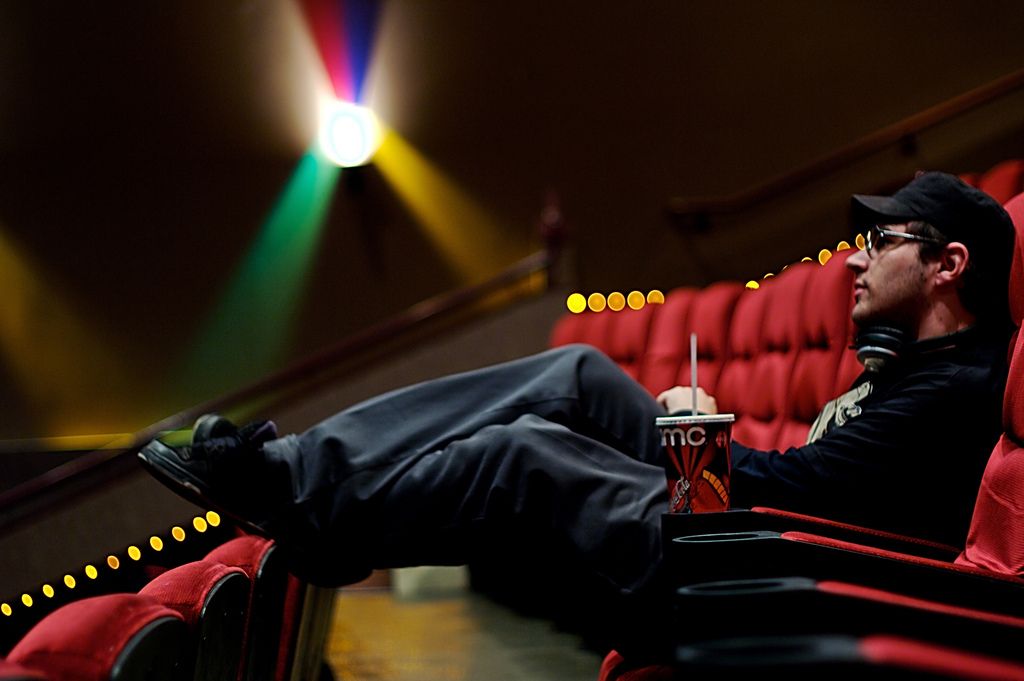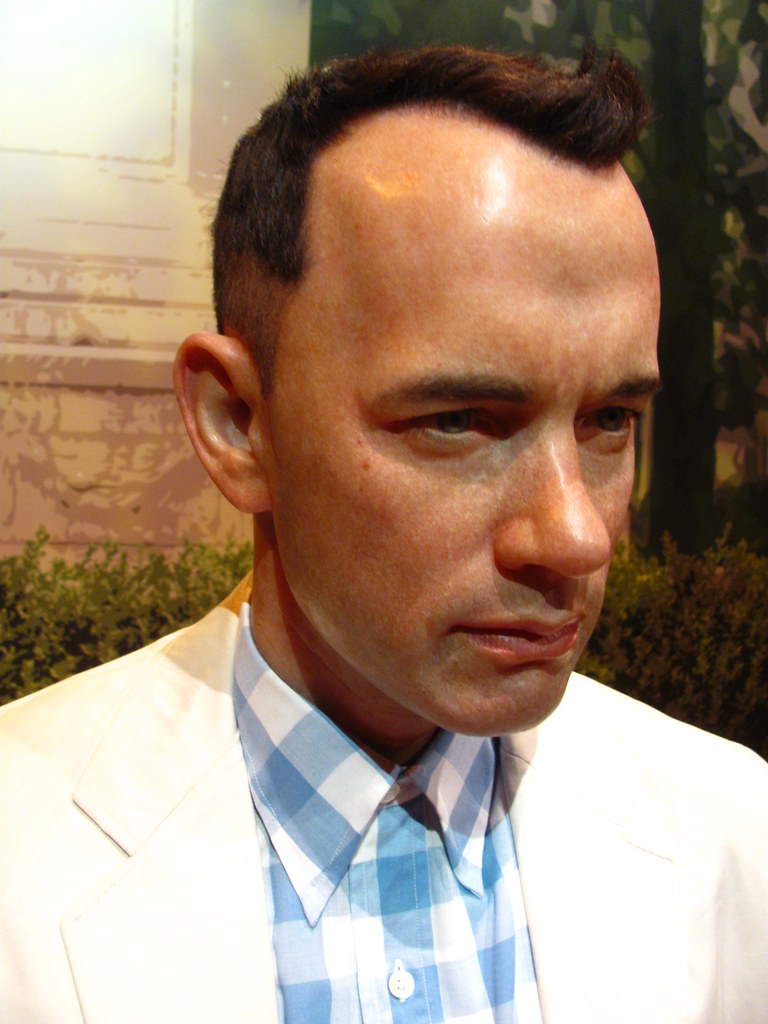
Tom Hanks has been a cinematic constant for over four decades, gracing screens in more than 80 films that have, collectively, woven themselves into the fabric of global pop culture. From heartwarming comedies to intense war dramas, his presence has become synonymous with quality, versatility, and an almost inherent likeability that makes his performances resonate deeply with audiences. Yet, in a revelation that sent ripples through Hollywood and across the internet, the Oscar-winning actor recently offered a surprisingly modest assessment of his own prodigious output, declaring that he considers only four of his movies to be “pretty good.”
This statement, made during an interview with People while promoting his debut novel, “The Making of Another Major Motion Picture Masterpiece,” wasn’t merely a casual aside; it was a profound insight into the mind of an artist grappling with the alchemy of filmmaking. Hanks described the process as a “miracle,” moving “From a flicker of an idea to the flickering image onscreen.” He candidly admitted that despite his vast experience, he’s “still amazed at how films come together.” This miraculous journey, he explained, is also “very hard work over a very long period of time that consists of so many moments of joy slapped up against an equal number of feelings of self-loathing.” It’s “the greatest job in the world and the most confounding of labors that I know of.”
Hanks’ surprising self-evaluation immediately sparked fervent debate and speculation among fans and critics alike. Which four films could possibly stand out to an actor of his caliber, known for such a glittering filmography? What metrics does a legend use to define “pretty good” when the world sees a parade of classics? This isn’t just about listing movies; it’s about deconstructing the subjective lens through which an artist views their own legacy, weighing the personal experience of creation against public adoration and critical acclaim. Join us as we dive deep into the films that might, or certainly do, hold a special place in Hanks’ highly selective pantheon, beginning with those he has explicitly cited for their profound personal impact.
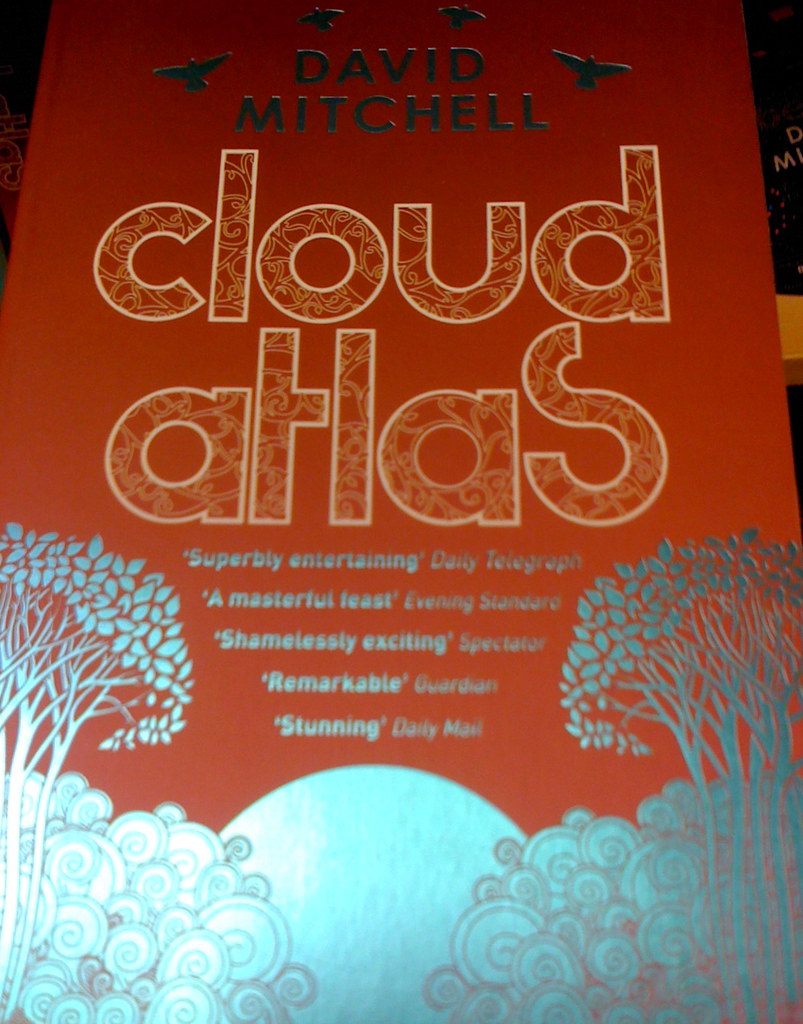
1. **Cloud Atlas**
Among the handful of films Tom Hanks has singled out for their deep personal significance, the 2012 science fiction epic, “Cloud Atlas,” holds a particularly intriguing spot. This isn’t a movie that was universally embraced by critics or set the box office alight; in fact, it was famously referred to as a “box office flop.” However, for Hanks, the film transcends mere commercial or critical metrics, earning its place among his cherished works due to the sheer, almost alchemical, nature of its creation.
Hanks articulated his connection to “Cloud Atlas” with an evocative description, stating, “It was the first time I’d ever shot extensively in Germany and I was surrounded by history. But the work itself, we were part of this big, massive ensemble of fantastic people who were just trying to do the hardest, best work on a deep throw.” This isn’t the sentiment of an actor merely proud of a finished product, but one deeply moved by the collaborative struggle and the environment in which it unfolded. The experience of working in a foreign land, steeped in history, clearly imbued the project with an extra layer of meaning for him.
The film, an ambitious tapestry of interconnected stories spanning centuries, was, in Hanks’ words, made “on a hope and a dream and nothing but a circle of love.” This speaks volumes about the dedication and passion poured into a project that dared to defy conventional storytelling. For an actor who has seen the full spectrum of filmmaking, from independent passion projects to mega-budget blockbusters, to describe an experience as one built on hope and love highlights a profound connection to the artistic endeavor itself, rather than the predictable trappings of success. It suggests that the purity of effort and the bond formed with fellow creatives are paramount in his personal reckoning of a film’s worth.
Hanks went further, praising “Cloud Atlas” as one of the most “magical” of his career. This choice is a poignant reminder that for artists, the journey often overshadows the destination. While the film may not grace every critic’s “best of” list, its intangible magic, born from intense dedication and a shared artistic vision, cements its status as a “pretty good” movie in the eyes of its lead, offering a compelling glimpse into the subjective heart of his criteria.
Read more about: 15 Rides Drivers Confess They’d ‘Unpick’ in a Heartbeat: Navigating Buyer’s Remorse and Avoiding the Pitfalls
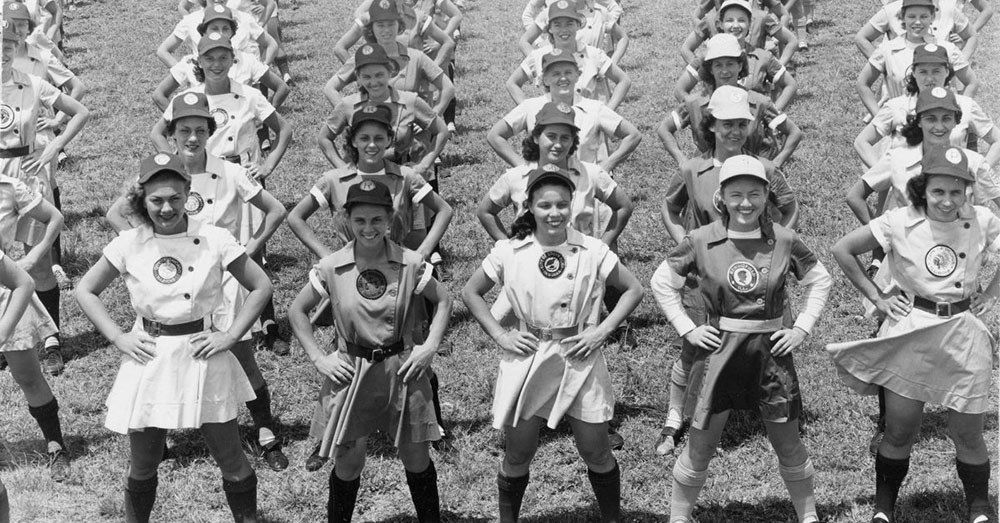
2. **A League of Their Own**
Shifting gears from ambitious sci-fi to heartwarming sports comedy, “A League of Their Own” is another film Tom Hanks has consistently placed high on his list of personal favorites, specifically citing it during his appearance on The Ringer’s “Bill Simmons Podcast.” This 1992 classic, set against the backdrop of a women’s professional baseball league during World War II, showcases Hanks in a role that, while comedic, is also deeply human and resonant. His choice here illuminates a different facet of what constitutes a “pretty good” experience for the actor.
His preference for “A League of Their Own” is rooted in the “personal experience” he had while making it, a metric he openly stated was distinct from how the movies were ultimately received. This suggests that the camaraderie, the atmosphere on set, and the unique challenges of portraying a gruff, disillusioned baseball manager who gradually finds his passion again, all contributed significantly to its enduring appeal in his memory. It wasn’t just a job; it was a deeply enjoyable and fulfilling chapter in his career.
The film itself is a beloved cultural touchstone, celebrated for its spirited performances, sharp writing, and its exploration of themes like gender equality, teamwork, and finding strength in adversity. For Hanks, portraying Jimmy Dugan, with his iconic line “There’s no crying in baseball!”, must have been a source of immense creative satisfaction. The joy derived from embodying such a memorable character in a story that continues to resonate with generations likely contributed to its elevated status in his personal estimation of his filmography.
Indeed, the warmth and enduring popularity of “A League of Their Own” speak to its genuine quality, but Hanks’ personal attachment highlights a deeper layer. It wasn’t just a successful film; it was a film whose creation brought him profound personal satisfaction and perhaps some of those cherished “moments of joy” he described as essential to the filmmaking miracle. His affection for this movie underscores that even seemingly lighthearted fare can be profoundly impactful on the artists who bring them to life, solidifying its place as one of his personally endorsed “pretty good” pictures.
Read more about: Decade Dominators: Remembering the 2010s’ Most Legendary Athletes Who Shined Brightest in Sports History

3. **Cast Away**
Rounding out the trio of films Tom Hanks explicitly named as personal favorites, based on his experience making them, is the harrowing 2000 survival drama, “Cast Away.” Directed by Robert Zemeckis, this film saw Hanks deliver one of his most transformative and physically demanding performances, often as the sole actor on screen for extended periods. His inclusion of “Cast Away” on his elite list speaks volumes about the value he places on intense, immersive artistic challenges and the profound personal growth that can accompany them.
The making of “Cast Away” was, by all accounts, an epic undertaking. Production famously paused for a year to allow Hanks to lose a significant amount of weight and grow out his hair, enabling him to authentically portray Chuck Noland’s physical and psychological deterioration on a deserted island. This level of commitment aligns perfectly with Hanks’ description of filmmaking as “very hard work over a very long period of time.” The isolation, the physical transformation, and the sheer mental fortitude required to carry such a narrative surely created an unforgettable, albeit arduous, “personal experience” for the actor.
The film’s critical and commercial success was undeniable, with Hanks earning an Academy Award nomination for Best Actor. Yet, his categorization of it as a “pretty good” movie seems to stem less from its accolades and more from the profound journey he underwent during its production. It was a role that pushed him to his limits, forcing a deep internal exploration of human resilience, loneliness, and the fundamental need for connection, even with a volleyball named Wilson.
For an actor, such an all-encompassing project leaves an indelible mark. The “feelings of self-loathing” Hanks mentioned might very well have been part of the grueling process of inhabiting Chuck Noland, but ultimately, the triumph over those challenges, the successful immersion into such a singular character, would undoubtedly contribute to a sense of profound accomplishment and satisfaction. “Cast Away” stands as a testament to the fact that some of Hanks’ most “pretty good” experiences were born from the most demanding and transformative artistic labors.
Read more about: Behind the Headlines: 13 Celebrities Who Honestly Regret Becoming Famous
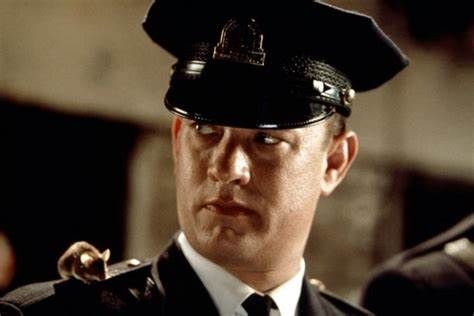
4. **The Green Mile**
While Tom Hanks himself has kept the remaining slot (or slots) of his “pretty good” films a mystery, external analyses and critical consensus offer compelling candidates. One such film, frequently championed by fans and critics alike, and notably picked by some as one of his four, is Frank Darabont’s 1999 masterpiece, “The Green Mile.” Based on the novel by Stephen King, this emotionally charged fantasy drama stands as a testament to Hanks’ ability to anchor profoundly impactful stories with gravitas and heart, even if he hasn’t explicitly named it as a personal favorite from an experiential standpoint.
“The Green Mile” remains a firm fan favorite, resonating deeply with audiences over two decades after its premiere. Its enduring popularity is a significant reason it’s often posited as a likely candidate for Hanks’ elusive top four. The film is described as a “brutally emotional, three-hour epic character study” that delves into the profound themes of “fantasy and magic on death row.” Hanks, as Paul Edgecomb, leads a stellar supporting cast including Michael Clarke Duncan, who delivered a powerhouse performance as John Coffey.
The narrative explores the “morality of corporal punishment as well as the blossoming of humanity in life’s strangest places.” This is precisely the kind of rich, morally complex storytelling that often defines Hanks’ most acclaimed work. His portrayal of a death row guard confronted by the inexplicable and the unjust offers a powerful meditation on compassion, justice, and the supernatural. The film’s weight and emotional depth are undeniable, solidifying its place in the pantheon of modern classics and undeniably showcasing Hanks’ acting prowess.
While Hanks’ personal criteria often lean towards the behind-the-scenes experience, the sheer impact and lasting legacy of “The Green Mile” on both audiences and the broader cinematic landscape make it a strong contender for any objective list of his “pretty good” films. It’s a film that profoundly moved millions, garnered critical adoration, and continues to be revered as a benchmark for powerful dramatic storytelling, demonstrating that a film’s inherent quality and cultural footprint can be as compelling a factor as the personal joy of its creation.
Read more about: Behind the Headlines: Actresses Who Served Prison Time and Their Storied Careers

5. **Philadelphia**
Continuing our exploration of films that critics and the public confidently place in Tom Hanks’ “pretty good” tier, Jonathan Demme’s groundbreaking 1993 drama “Philadelphia” emerges as an undeniable inclusion. This film didn’t just mark a career milestone for Hanks; it was a cultural phenomenon that cemented his status as a serious dramatic actor and a Hollywood icon. It’s hard to imagine any discerning list of his best work that would omit this powerful and historically significant movie.
“Philadelphia” was the vehicle for Hanks’ very first Academy Award for Best Actor in a Leading Role in 1994, an accolade that undeniably established his “true Hollywood icon” status. The narrative tells the poignant and courageous story of a man with HIV who is fired from his law firm because of his condition, only to hire a “homophobic small-time lawyer as the only willing advocate for a wrongful dismissal suit.” This was a film that dared to tackle the AIDS epidemic head-on during a time when much of Hollywood was still hesitant to portray the illness with such unflinching honesty and empathy.
Starring alongside an impressive supporting cast that included Denzel Washington, Roberta Maxwell, and Karen Finley, Hanks delivered a performance of immense vulnerability and strength. His portrayal of Andrew Beckett was not only critically acclaimed but also deeply humanizing, helping to break down societal stigmas surrounding AIDS. The film’s impact extended far beyond the cinematic realm, sparking important conversations and fostering greater understanding and compassion at a crucial time in history.
Recognized as an “important 1990s classic,” “Philadelphia” represents a pivotal moment in both Hanks’ career and American cinema. Its profound social relevance, combined with its artistic excellence and the sheer power of Hanks’ Oscar-winning performance, makes it an almost indisputable candidate for a “pretty good” film, regardless of Hanks’ own personal retrospective criteria. It’s a film that fundamentally changed perceptions and solidified his reputation as an actor capable of delivering performances that are not only entertaining but also profoundly meaningful and culturally transformative.
Read more about: The Enduring Story of a Legend: Bruce Springsteen’s Path from Asbury Park to Global Icon
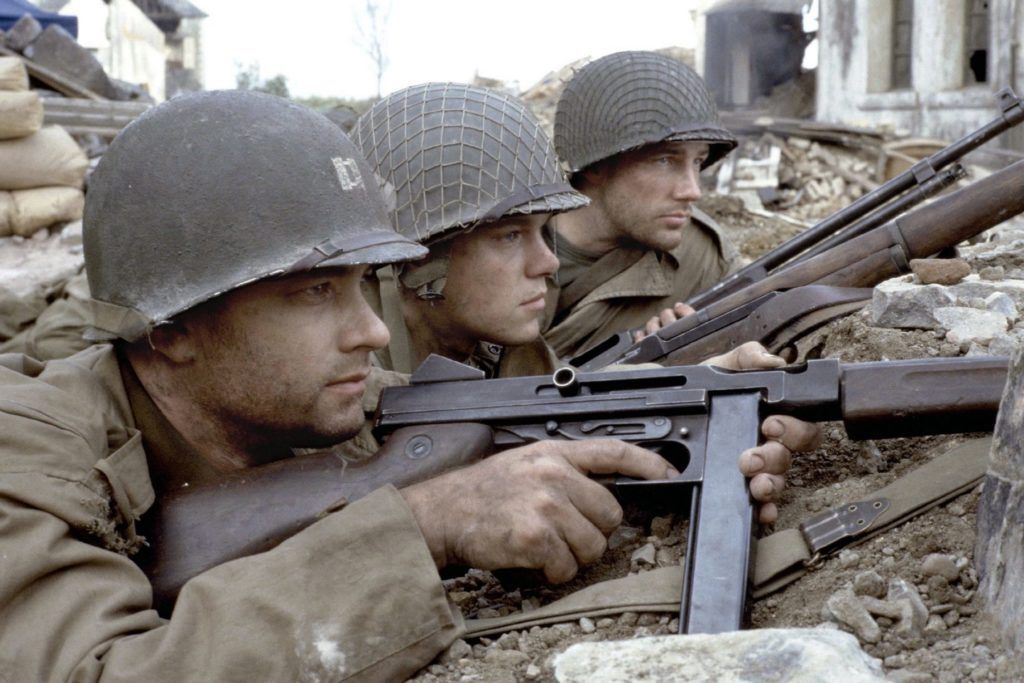
6. **Saving Private Ryan**”
“War is hell; this is no doubt, with Steven Spielberg showing this to be overwhelmingly true in his classic war drama Saving Private Ryan in 1998.” For Tom Hanks, a career marked by diverse roles saw him don the uniform of Captain Miller, a character etched into the annals of cinematic heroism. Tasked with the harrowing mission to “lead a group of U.S. soldiers who go behind enemy lines to retrieve a paratrooper whose brothers have been killed in action,” Hanks delivered a performance of profound gravitas and weary determination in this “intense piece of drama that doesn’t hold back.”
The film’s opening sequence, depicting the D-Day landings, remains one of the most visceral and impactful portrayals of combat ever committed to screen. Spielberg’s meticulous direction, coupled with Janusz Kamiński’s groundbreaking cinematography, created an experience that was both unflinching and deeply immersive. Hanks’ presence as Captain Miller anchors this brutal reality, offering a beacon of humanity amidst the chaos, a performance that undoubtedly required immense emotional and physical commitment from the actor.
Beyond the relentless action, “Saving Private Ryan” is a poignant exploration of duty, sacrifice, and the moral ambiguities inherent in warfare. Captain Miller is not a caricature of a war hero; he’s a man burdened by the immense responsibility of his command, visibly scarred by every loss. His quiet resolve and underlying humanity, brought to life by Hanks, resonated deeply with audiences and critics, further solidifying his reputation as an actor capable of immense dramatic weight.
“Saving Private Ryan” stands as a monumental work in Hanks’ filmography, a testament to his ability to anchor profoundly impactful stories. It’s a film that transcends its genre, leaving an indelible mark on popular culture and the artistic landscape. For its sheer ambition, raw emotional power, and Hanks’ anchoring performance, it unquestionably earns its place among the “pretty good” films, a masterpiece that continues to be studied and revered decades later.
Read more about: Hold Up! 15 Beloved Movies With Plot Holes So Big You’ll Scream ‘How Did I Not Notice?!’
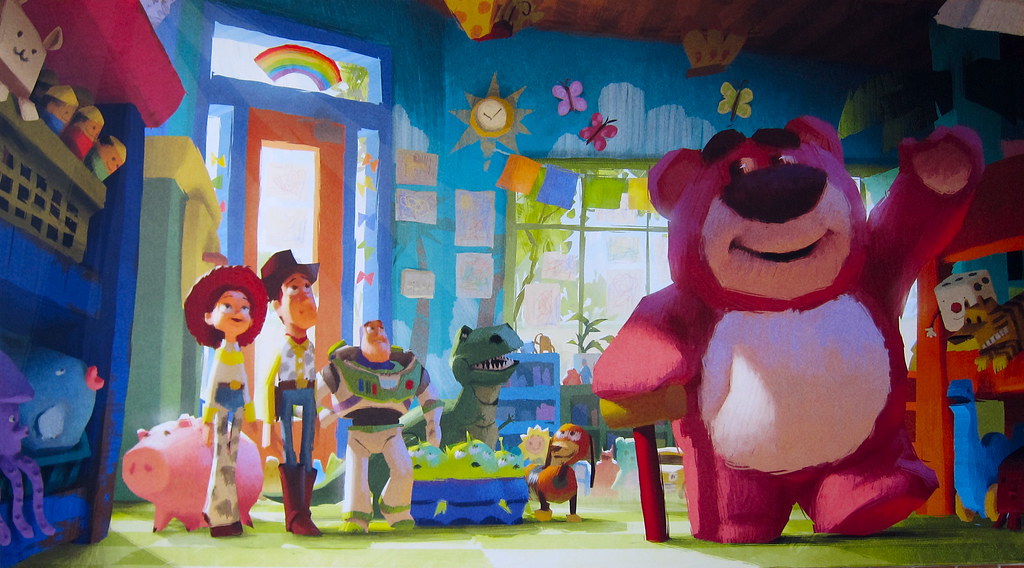
7. **Toy Story**
“For Toy Story’s sheer technological innovation, Pixar’s delightful animation would have a significant effect on the industry’s future, becoming the very first feature film ever made entirely on computers.” This bold leap in animation, spearheaded by John Lasseter in 1995, was more than just a novelty; it was a fundamental shift, demonstrating “the sheer possibility of digital technology at the border of the 21st century.” At its heart was Tom Hanks, whose voice breathed life into the now-iconic cowboy doll, Woody, placing him “at the very forefront of this revolution.”
The impact of “Toy Story” extended far beyond its groundbreaking visuals. It wasn’t just that it “shifted cinema from celluloid to the domain of digital, forever changing its makeup”; it presented a compelling, emotionally rich narrative that defied expectations for animated features. Pixar proved that computer-generated imagery could be a powerful tool for sophisticated storytelling, not just spectacle. Hanks’ performance was pivotal in this, imbuing Woody with a complex mixture of leadership, jealousy, and unwavering loyalty.
Hanks, known for his ability to convey deep human emotion, brought an unexpected vulnerability and charm to Woody. He masterfully captured the anxieties of a beloved toy facing potential replacement by a newer, shinier model, Buzz Lightyear. This nuanced portrayal made Woody relatable, transforming what could have been a simple cartoon character into a fully realized personality that audiences instantly connected with and rooted for.
While Tom Hanks often judges his “pretty good” films by the personal experience of their creation, his involvement in “Toy Story” undoubtedly falls into a category of profound artistic contribution and cultural impact. It launched one of the most beloved and critically acclaimed franchises in cinematic history and cemented Woody as an iconic character. For its technological pioneering, narrative excellence, and Hanks’ indelible voice work, “Toy Story” indisputably earns its place as a “pretty good” movie, a true milestone in both his career and the industry at large.

8. **Forrest Gump**
“Forrest Gump,” the 1994 cinematic phenomenon, remains undeniably one of Tom Hanks’ most celebrated and recognizable films, earning him his second consecutive Academy Award for Best Actor. Its memorable quotes, iconic imagery, and episodic journey through decades of American history have firmly etched it into the collective consciousness, making it a cultural touchstone. Yet, for all its widespread adoration and critical accolades, “Forrest Gump” presents a fascinating and often-debated paradox within the context of Hanks’ highly selective appraisal of his own vast filmography.
While the film’s popular success was immense, and its trophy cabinet overflowing, a critical perspective emerges, noting that it “may not actually be as good as fans remember it being, telling a strange, saccharine view of American history.” This particular insight highlights a compelling tension: a movie revered globally, yet one whose historical lens and underlying messages are subject to considerable re-evaluation and discussion. It forces a deeper consideration of what truly constitutes a “classic” and how perceptions evolve over time.
Intriguingly, despite its monumental impact on his career, Tom Hanks has not explicitly included “Forrest Gump” in his personal roster of favorites based on the experience of making the film. This omission, in itself, speaks volumes about the actor’s unique criteria. However, he has “expressed frustration at how the 1994 film is excluded from lists of the greatest movies of all time,” indicating a complex, almost protective, relationship with its legacy, even if the on-set experience wasn’t his absolute favorite.
“Forrest Gump” sits at the fascinating intersection of immense popular success, ongoing critical debate, and an actor’s deeply personal, yet sometimes publicly contradictory, perspective. It delivered an Oscar-winning performance that cemented Hanks’ star power and versatility. For these reasons, and the fact that it perfectly embodies the “most iconic, yet often debated, roles” aspect of our exploration, it stands as an absolutely crucial entry in our quest to understand Tom Hanks’ definition of a “pretty good” movie.
Read more about: What If? Exploring the Unbelievable Stories of 14 Actors Who Rejected Iconic Roles That Became Cinematic Classics
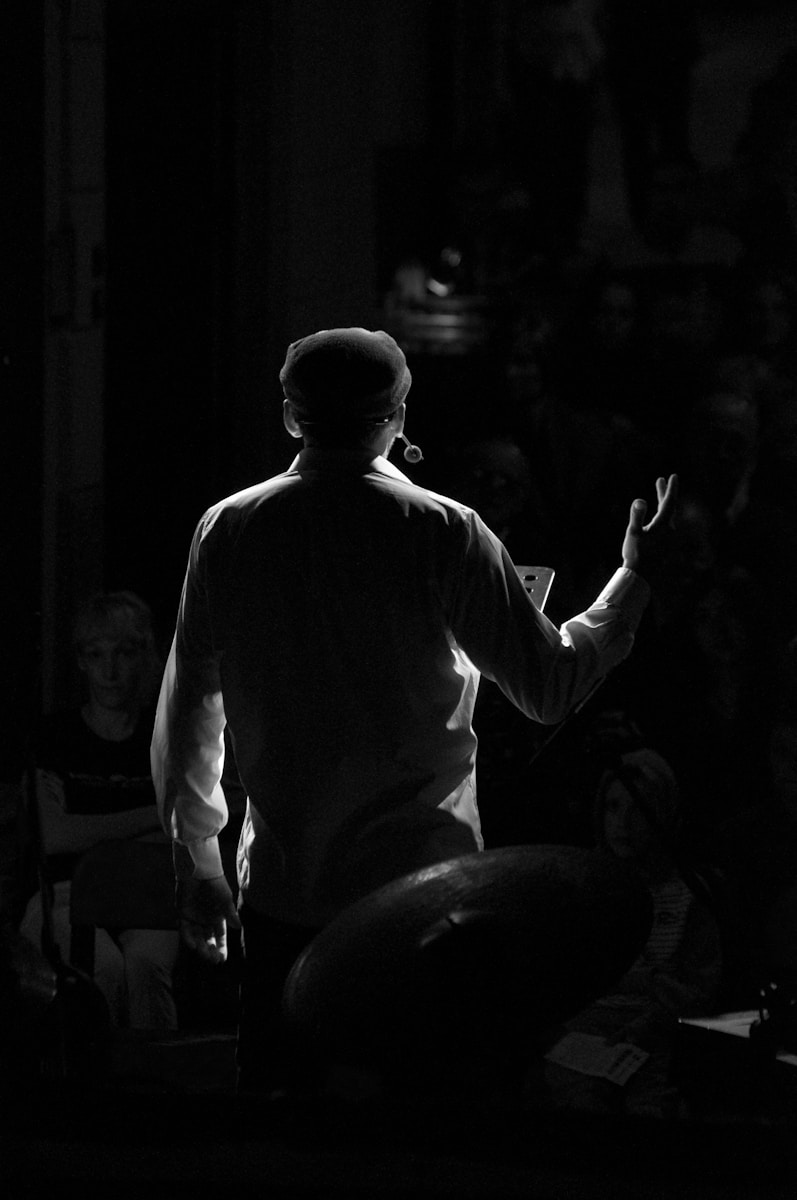
9. **Big**
Long before he was rescuing soldiers or surviving on deserted islands, Tom Hanks captured hearts and minds with his absolutely charming and iconic performance in the 1988 fantasy-comedy “Big.” This film wasn’t just a hit; it became a cherished classic, solidifying Hanks’ early career and showcasing a remarkable ability to channel pure, unadulterated youthful wonder and innocence. It’s a testament to his burgeoning versatility that he could so effortlessly pivot from romantic comedies to a role demanding such heartfelt and authentic childlike behavior.
In “Big,” Hanks portrays Josh Baskin, a 12-year-old boy whose wish to be “big” comes true overnight, transforming him into an adult. His performance is a masterclass in physical comedy, nuanced emotional expression, and an uncanny ability to convincingly embody a child trapped within a grown-up’s body. He perfectly captured the pure joy, the bewildering confusion, and the genuine fear of navigating an adult world with a child’s understanding, creating a character that was both hilarious and deeply sympathetic.
The film itself is a delight, transcending its simple premise to explore profound themes of responsibility, the bittersweet loss of innocence, and the often-overlooked magic of childhood, all handled with a gentle wit that resonates universally. “Big” played a pivotal role in establishing Hanks as a bankable leading man, proving his capability to carry a film with both robust humor and sincere, relatable emotion. It foreshadowed his later success by demonstrating his unique knack for connecting with audiences on a profoundly human, approachable level.
While Hanks didn’t explicitly name “Big” among his top personal favorites, its widespread critical acclaim and enduring popularity firmly cement its place among the films widely considered “pretty good” in his extensive filmography. It’s a film that consistently brings smiles, offers a timeless reflection on the magic and challenges of growing up, and showcases a foundational performance that undeniably shaped the trajectory of a legendary career. Its inventive premise and emotional depth have ensured its lasting adoration in popular culture.
Read more about: Behind the Headlines: Actresses Who Served Prison Time and Their Storied Careers
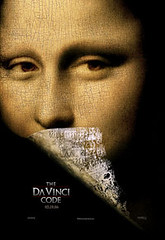
10. **The Da Vinci Code Sequels (Angels & Demons & Inferno)**Any comprehensive exploration of Tom Hanks’ perspective on his own work, particularly his refreshingly candid assessments, must squarely address the projects he has openly, and quite charmingly, dismissed. At the forefront of this category are the sequels to 2006’s “The Da Vinci Code”—specifically 2009’s “Angels & Demons” and 2016’s “Inferno.” These films stand in stark contrast to his “pretty good” criteria, offering a remarkably revealing glimpse into the often-unspoken commercial pressures and occasional artistic misfires that even an actor of Hanks’ revered stature must navigate throughout a legendary career.
Any comprehensive exploration of Tom Hanks’ perspective on his own work, particularly his refreshingly candid assessments, must squarely address the projects he has openly, and quite charmingly, dismissed. At the forefront of this category are the sequels to 2006’s “The Da Vinci Code”—specifically 2009’s “Angels & Demons” and 2016’s “Inferno.” These films stand in stark contrast to his “pretty good” criteria, offering a remarkably revealing glimpse into the often-unspoken commercial pressures and occasional artistic misfires that even an actor of Hanks’ revered stature must navigate throughout a legendary career.
Hanks, with his characteristic blend of frankness and understated humor, did not shy away from expressing his true feelings about these poorly received follow-ups. He notably categorized them as “hooey,” a delightfully evocative and quintessentially Hanksian term for something utterly nonsensical, trivial, or simply not up to par. This level of candor is striking, as it highlights a significant distinction: unlike many of his chosen “pretty good” films, which involved deep personal engagement or demanding artistic challenges, these projects appear to have been primarily transactional, lacking the profound personal connection and creative fulfillment he so evidently seeks in his work.
His critical analysis of these films extended beyond mere artistic dissatisfaction, delving into their commercial viability. As he candidly observed in an interview with The New York Times Magazine, “All we were doing is promising a diversion. There’s nothing wrong with good commerce, provided it is good commerce.” He went on to further elaborate on their diminishing returns, stating that “By the time we made the third one, we proved that it wasn’t such good commerce.” This isn’t merely an actor expressing a subjective opinion; it’s an industry veteran, with an acute and informed understanding of the business mechanics, pointing out when a creative venture ultimately fails on its own stated terms, both artistically and financially.
These openly dismissed films serve as a poignant and instructive counterpoint to the “miracle” of filmmaking Hanks so often articulates. They underscore his unwavering honesty and the discerning eye he applies to his own career trajectory, humbly recognizing that not every project, no matter the pedigree, can achieve artistic transcendence or even sustained commercial success. In revealing his true feelings about “Angels & Demons” and “Inferno,” Tom Hanks offers a compelling lesson in artistic integrity and personal accountability, solidifying his reputation as one of Hollywood’s most genuine and thoughtful figures.
This comprehensive exploration into Tom Hanks’ “pretty good” films, spanning his deeply personal touchstones, critically acclaimed masterpieces, and even his refreshingly candid dismissals, paints an exceptionally vivid and nuanced portrait of an actor navigating a truly legendary career. It’s a journey that transcends a mere listing of cinematic achievements, delving instead into the subjective heart of artistic creation itself. His diverse criteria, whether rooted in profound personal experience, groundbreaking technological innovation, undeniable cultural impact, or even the lessons learned from commercial missteps, collectively invite us all to reconsider our own definitions of what truly makes a movie “pretty good.” Ultimately, Hanks’ humble, yet insightful, self-assessment only deepens our appreciation for the enduring magic, the profound humanity, and the sheer unpredictability he consistently brings to the silver screen, one “pretty good” film at a time.

